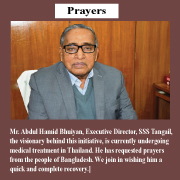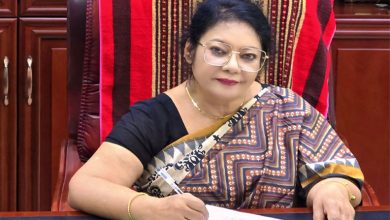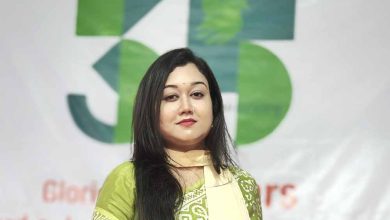BEDO executive director Aminul Islam says microfinance now serves the middle class, not just the poor


Holiday Post Report: Microfinance in Bangladesh didn’t start off as a business. It started as a tool to lift people out of poverty. Aminul Islam, Executive Director of BEDO, says that when it first began, nearly every borrower was poor. They were farmers, widows, unemployed men—people who had no one else to turn to. Microfinance offered them hope, a loan, and a chance to do something with their lives.
But things have changed. Aminul doesn’t deny it. The face of the borrower has changed. The poor are no longer the only ones borrowing from microfinance institutions. In fact, he says, most of the loans are now going to small and medium entrepreneurs. The middle class. Business owners. People who already have something and want more.
He says that’s not necessarily a bad thing. It just means the system has evolved. The country’s economy has changed, and lending patterns shifted with it. BEDO sees this shift clearly. They’ve watched as microfinance moved from the hands of the ultra-poor to the hands of aspiring entrepreneurs trying to grow their businesses.
Aminul recalls the early days when rural Bangladesh had no banks nearby. Just moneylenders. People borrowed from them out of desperation and ended up losing whatever little they had. Microfinance broke that chain. For the first time, people could borrow money and still sleep at night.
He says the rural poor didn’t default. They struggled, but they paid back their loans. It’s the richer people, he adds bluntly, who take large loans and then disappear—sometimes smuggling the money abroad. That’s a hard truth, he says, but one the country has to face.
Poverty, according to Aminul, is still a deep-rooted problem. You don’t just fix it by copying Western policies. Many governments tried that, he says, but most of those strategies failed because they didn’t fit Bangladesh’s reality. Poverty is not just about money. It’s about discrimination, especially against rural women. It’s about polygamy, child marriage, divorce without justice, dowry, and denial of maintenance. These are the chains that still hold people down.
Aminul believes that until rural women get equal access to education, healthcare, and opportunity, poverty won’t go away. That’s one reason he helped form BEDO. He didn’t just want to talk about problems—he wanted to do something.
And that’s what BEDO still does today. It’s not just about giving loans. It’s about breaking cycles. Poverty cycles. Injustice cycles. BEDO’s mission, Aminul says clearly, is to reduce suffering and push back against extreme poverty. Not just on paper, but in the villages, in the homes, and in the lives of real people.





